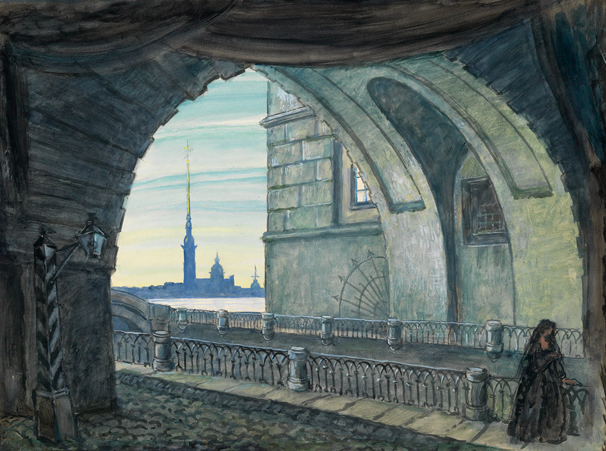Please note: This exhibition is on view in the Russian Center Art Gallery, located in the Amherst Center for Russian Culture in Webster Hall. HOURS & DIRECTIONS»

This exhibition brings together seventeen twentieth-century Russian rural and urban scenes from the Thomas P. Whitney (Class of 1937) Collection. It offers a journey to places around the world that were cherished by the artists who depicted them. The works continue the nineteenth-century tradition of Russian landscape painting, founded by a group of realist artists called the Wanderers, which split off from the classical academic canon, with its emphasis on rendering scenes from the Bible and mythology, and started to depict their environment, frequently with sociocritical intentions.
Progressive artists of the twentieth century—as featured in the exhibition—rejected, however, the realism from the previous century, which continued to be popular with the Soviet regime. Their art was rooted in Impressionism, Post-Impressionism, Cubism, and, after the Second World War, in modernist currents from the early twentieth century and contemporary Western art. What remained active in these artists’ worldview was the dispute about Russian culture and politics, and questions of identity and belonging, nostalgia and survival.
The display includes views of St. Petersburg by Mstislav Dobuzhinskii, Alexandre Benois, and Vladislav Izmailovich. All three artists loved the city and depicted it throughout their careers, both while living there and when recalling it from memory while living abroad. Other works in the exhibition include a view of Paris by Robert Fal’k, a fantastic African landscape in Pavel Filonov’s Flight into Egypt, and an early work by Natalia Goncharova depicting Moscow, as well as paintings by Mikhail Larionov, Isaak Levitan, Oskar Rabin, and Marianne von Werefkin. Print materials on view from the holdings of the Amherst Center for Russian Culture include journals featuring David Burliuk, the “Father of Russian Futurism”; The City (Gorod), a poem by Aleksandr Rubakhin illustrated by Goncharova; and Chant of the Universal Flowering (Propeven’ o prorosli mirovoi) by Filonov.
The exhibition has been organized by Bettina Jungen, senior curator and Thomas P. Whitney, Class of 1937, Curator of Russian Art, Mead Art Museum.
Annotated and Illustrated Exhibition Checklist